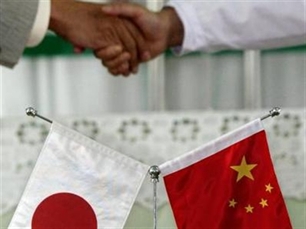Japan and China on June 1 began direct bilateral trade of their currencies (Yen and Yuan). This not only simplifies trade and financial transactions between the countries but also has a considerable impact on their political relations.
Japan’s Finance Minister Jun Azumi said on May 29 that not using the dollar as an intermediate currency will help lower transaction costs and reduce settlement risks at financial institutions.
The People’s Bank of China said
that using the Yen and Yuan in bilateral trade will strengthen financial
cooperation between China
and Japan.

With the new mode of trading, analysts say Chinese and Japanese companies will suffer from less foreign exchange risks. For China, this move marks a specific step toward realizing its ambition to internationalize the Yuan. Japanese companies will benefit by trading in the Yuan in other financial centers in London and Singapore where Yuan trading systems will soon be established.
China is one of Japan’s largest trading partners, but about 60 percent of their mutual trade is denominated in US dollars.
Bearing the brunt of the 2008 global economic crisis, slow development of the US economy and public debt crisis for which Japan and China’s exports were hard hit, the two countries realized the need to save costs in investment and reduce dependence on the US dollar.
Last November, China and Japan signed a deal on direct exchange of their currencies which officially took effect on June 1 in Tokyo and Shanghai markets.
The current shortcomings of the international financial system dependent on the US dollar trigger the need to restructure the system. The Yuan is considered to be the likely candidate to compete with the US dollar in international payment and reserves.
Analysts forecast that in the mid-term, the Chinese currency will be accepted in the international financial market and is likely to take the key role in the global market in the long term.
China has also signed currency swap agreements with 16 central banks in the world including member banks of BRIC states – Brazil, Russia, India and China.
In March 2012, the central banks of China and Australia signed a currency swap agreement. Standard Chartered Bank has recently announced it will open an offshore yuan trading center in London. A similar plan has been pushed up in Singapore.
For China, direct currency trading will be the next step on the path to promote its currency and reduce dependence on the US dollar and euro in the global market.
Beside economic benefits, direct trading between Tokyo and Beijing also has a considerable impact on bilateral political relations.
China is the fastest growing economy in the world and is likely to replace the US as the world’s most powerful economy in the future.
Japan is also the second powerful economy in the world following fast economic growth in 60s and 70s. The country is also on the path to reinforce its political position in line with its economic growth in the Asia-Pacific region and the world.
The trend China and Japan are heading towards is to build mutual trust for economic benefits in the context of the current global economic crisis.
VOV5/VOV online


























